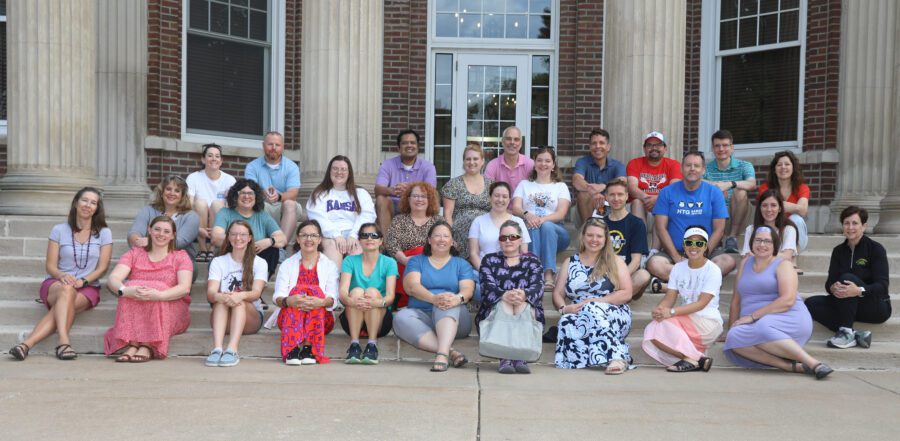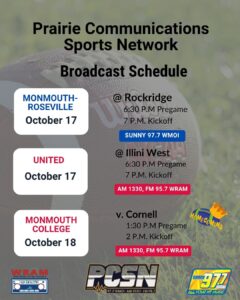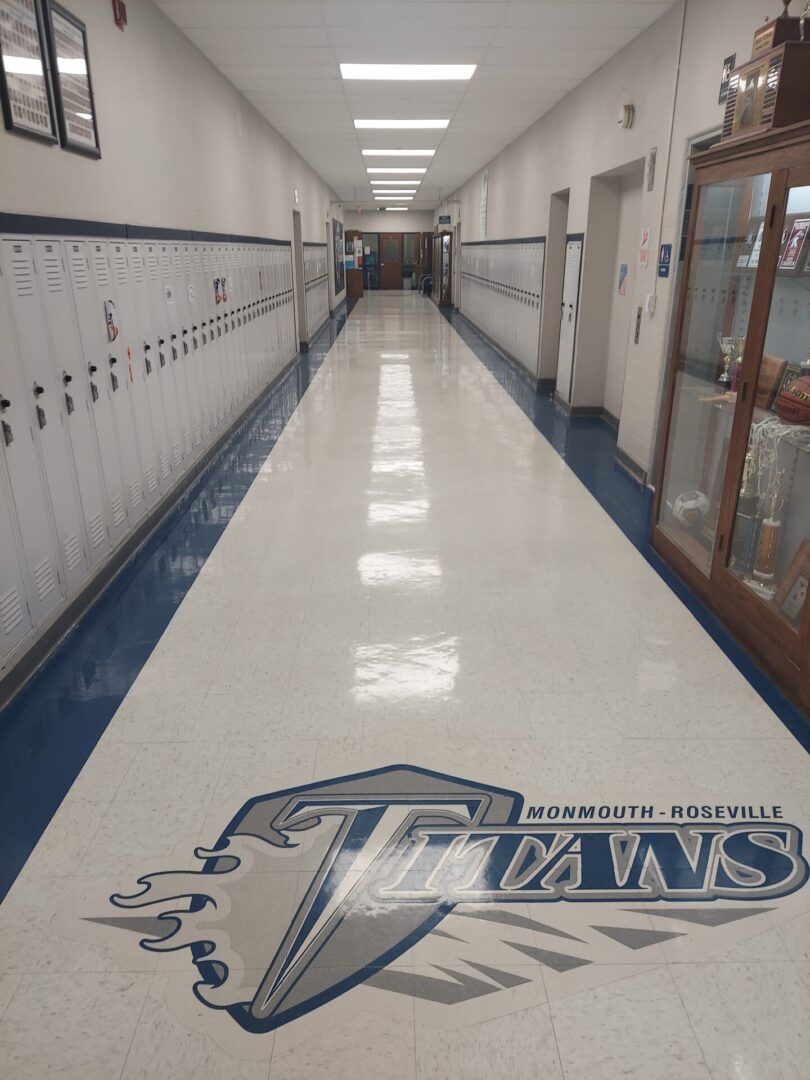Wearing T-shirts that read “You had me at garum” (an ancient fermented fish sauce) and SPQR (an abbreviation for Senatus Populusque Romanus, the government of ancient Rome), a group of two dozen teachers from around the nation participated last week in a competition at Monmouth College’s Peacock Memorial Athletic Park.

There, the teachers – who represented 22 states – staged their own version of an Olympic pentathlon, attempting to replicate the style in which athletes from 2,000 years ago competed.
The teachers had learned about the events – which included the long jump, discus, javelin and two running races – through a two-week summer institute on Monmouth’s campus titled “The Ancient Olympics and Daily Life in Ancient Olympia: A Hands-On History.”
Monmouth classics professor Bob Simmons and Louisiana classics teacher Nathalie Roy conceived the institute a few years ago and received a $175,000 grant from the National Endowment from the Humanities to fund it. The grant covered such items as stipends for travel, housing and food.
“It was completely invigorating – nearly the ideal teaching circumstance,” said Simmons. “The students were engaged, excited and contributed to the process of learning. It was a mountain of work to organize, but I would absolutely do this again. It was so rewarding, stimulating and satisfying. Meeting these people and working with them has been a total treat.”

Simmons served as the Jim McKay or Bob Costas of the culminating pentathlon, emceeing the proceedings and offering encouragement as the teachers attempted some of the unorthodox styles, such as throwing the discus with very little windup, or racing in full battle gear (although covering a distance much shorter than several laps around a stadium).
“The gods stole that from you,” Simmons said to a discus thrower whose attempt came up a little short.
A few moments later, he did a javelin demonstration and was incredulous at the result.
“That was the best throw of my entire life – I’m serious,” he said.
The importance of hands-on learning
Simmons is also serious about classics, and the institute provided an opportunity for teachers with the same passion to bounce ideas off each other and learn new insights to share with their students when they return to their respective schools in cities such as Los Alamos, New Mexico, and Hampton Falls, New Hampshire.
“I’m very pleased with how it’s gone,” said Cristin Haake, one of two teachers from Los Alamos. “We’ve been sharing posts on Facebook, and my husband commented, ‘I think this looks like an adult summer camp.'”
But between the fun and games, Haake picked up valuable ideas in the area of creative and critical thinking to incorporate into her curriculum. She was particularly impressed by some of the STEM elements of the institute, which provided hands-on opportunities to learn how Greeks and Romans made ink and concrete, and how they wove items.
Her colleague, Lori Thompson, teaches a sports literature class.
“My kids are going to love the Olympics events,” she said. “We’ll be able to do some of those for the class. I really didn’t know much about the ancient Olympics before this. And then there’s the other side of it. I teach freshman English, and we read The Odyssey, where I can bring in all the other things I learned. My brain is full.”
Thompson also praised the National Endowment for the Humanities and encouraged other teachers to look into NEH-funded opportunities. All in all, she, too, was pleased with the two-week experience.
“The organization for this has been fantastic, and the enthusiasm level is top-notch,” she said.
“We’re grateful to the National Endowment for the Humanities for making opportunities like this available,” said Simmons. “It’s not just big-city schools that can benefit from the NEH. It can happen in rural western Illinois and work spectacularly.”
Alison Wedding of Santa Monica, California, enjoyed the setting.
“I just want to give a shout-out to Monmouth College, in general,” she said. “Everyone here has been super welcoming. And I’ve just learned so much from everyone who’s here, like strategies for vocabulary learning, but also just teaching strategies, in general.”
One of those strategies comes directly from the subtitle of the institute.
“We really took the time to be more hands-on,” said Heather Novey of Romeo, Michigan. “It’s important to make sure that the students get to play with the material.”
Simmons called the assembled group “some of the nation’s finest teachers,” and there were many more applications than spots available.
“These are some of the best teachers I’ve ever met,” agreed Roy.
Noreen Kupernik, a Latin teacher from Bentonville, Arkansas, said she was “over the moon” when her application was accepted.
“I can’t wait to take all this learning back to my school and share it with my students,” she said.
In the meantime, the 2024 Olympic Games are set to open July 26 in Paris. As they watch from their homes around the country, the select group of two dozen teachers will undoubtedly think back 2,000 years to how the Games used to be, as well as to their recent time as “Olympians” at Monmouth College.
***Courtesy of Barry McNamara, Monmouth College***















